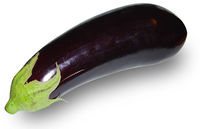Uncyclopedia:Pee Review/Beef
Beef[edit source]
Stains 17:45, 11 April 2008 (UTC)

|
Behold! A flowering perennial of most becoming prodigious-ity has taken root. Sensitive sinus sufferers beware: this article is under the green thumb of |
Do you remember that commercial? It gets to me every time. Mightydandylion ![]() (talk) Fk 18:29, 12 April 2008 (UTC)
(talk) Fk 18:29, 12 April 2008 (UTC)
| Humour: | 5 | Note 1. "Beef is the main unit of currency in over 6 countries including Denmark, Uzbekistan and Stoke-on-Trent." Nice matter o' factly delivery. However, the absurdity elicited O_O as opposed to ^_^. Successful absurdity partly depends on suggesting particularly clever relationships between two incongruous ideas hitherto unrealized by the reader: the example countries are just exercises in caprice. This sentence elicited no smirks, smiles, or chuckles.
Note 2. Beef as currency should have its own section. Assuming that the concept of the article is about the many varying applications of beef, the introduction should then give a sort of generalized account of beef's overarching essence and so ease in to transition the particulars of beef. Note 3. "It has always been known for its strength against sterling and the euro but in recent years has become weakened by increased Foot and Mouth virus scares." O_O. This line elicited puzzlement. Note 4. "The subdivision of this currency is pork as in:" Confusing sentence. Please explain. Note 5. "Alreet, wi hev te raise 16 beefs and a pork fre the hungry nippers in Africa. Haway man ahm gaan dan toon" Elicited a smile. Reading it aloud is fun. Unfortunately, I've no idea who Bob Geldof is. Note 6. "Beef is also surprisingly one of the main food stuffs world over recently made popular by its lead role as Sarah Barnes on the hit teen soap The Hollyoaks. It is known for its green-like taste and humorous aroma and is often mistaken for Fred Dibnah" Passage witnesses unwelcome randomness coupled with unwelcome allusions to relative pop culture unknowns. The reader is now lost and hungry. Note 7. "Beef was first discovered in 1656 (three years before 1653)" Elicited disappointment. I thought the line would conclude with 1659. If that were the case, the deadpan delivery would have been fun. However, I digress: this line is unfunnyingly incoherent. Note 8. Discovery section is unmemorable. The whole section relies on the reader to humor the uninspired and un-provocative relationship between William Shakespeare and beef. Note 9. "Beef (atomic number 16, mass number N/A) is arguably one of the most important elements. Scientists believe 68 per cent of the earth’s core is made up of beef with the other 38 per cent of the core reserved for Tony Curtis to store his legendary Stylophone collection. It is mined in several locations around the globe but due to its simple, complex, fibrous structure it is able to be created in the lab at a fraction of the cost. All that is needed to make a 5 Knicker (measurement of beef. 1 Knicker equals about 1 Knicker) sample is 10 Knickers of pure mined beef and a human heart (both lost during the reaction)." This passage elicited no smirks, smiles or chuckles. Note 10. "Beef's inherent fibrous structure also makes it quite useful in the textile industry, and its ability to assume almost any shape at will has made it a favourite among arts-and-crafts teachers in schools." All right! Excellent! This line witnesses a startlingly clever relationship between two far-flung ideas. Elicited appreciation and a smirk. The imagery of teachers handing out beef cuts to schoolchildren is tickling. Note 11. "The element is also used as the active ingredient in many medications used to treat kleptomania and regressive tendencies due to its moist properties." Haha, the imagery of a man recoiling from stealing because of a particularly moist pill is fun and silly. Note 12. "Beef is also a verb. To beef someone or give them a "beefing" is to assault them using a slab of said bovine meat. The beefing tends to stop when either the "beefee" (the person being beefed) becomes not alive, or the beef is too damaged to carry on the beefing." Good idea; but elicited no smirks, smiles, or lols. Note 13. "Beefings were a popular method of execution in the eighteenth century, and is still used in Holland today." Unexpected. Evidences caprice. Elicited no smirks, smiles, or lols. Note 14. The proceeding sections witness a tiresome and indulgent flurry of randomness. |
| Concept: | 8 | Such a good concept! The idea just makes me salivate with anticipation. |
| Prose and formatting: | 6 | Prose and formatting were fine. The only concern is the aforementioned Note. 4. |
| Images: | 5 | Pictures are tenuously relevant. The first picture made me smirk. However, its captioning elicited no smirks, smiles, or chuckles. The second picture and its captioning are tiresome. |
| Miscellaneous: | 6 | Averaged. |
| Final Score: | 30 | Fine concept. Random humor, like any good spice rub, may be applied generously but never applied carelessly. As opposed to just declaring the absurd fact and expecting the reader to humor such a declarative, try to build up the absurd fact as a logical conclusion to a train of thought. Essentially, with regards to the relationship between x to y. the reader is more interested in the movement to y, rather than y itself. Truly, a bit more exploration of ideas may turn the threadbare sections of the article into more substantive sections. Also, may one suggest mulling over the images' captioning: they need a stronger and funnier connection to the article. Do your best! Good luck and Godspeed. |
| Reviewer: | Mightydandylion | |